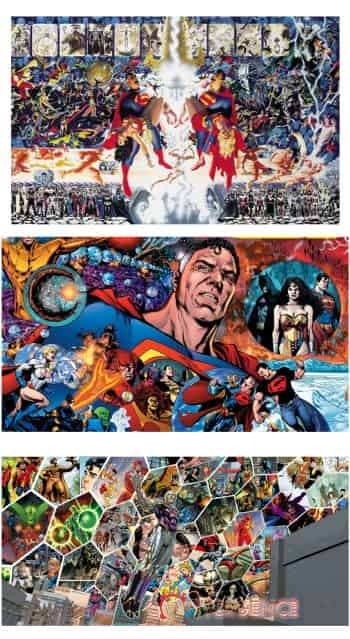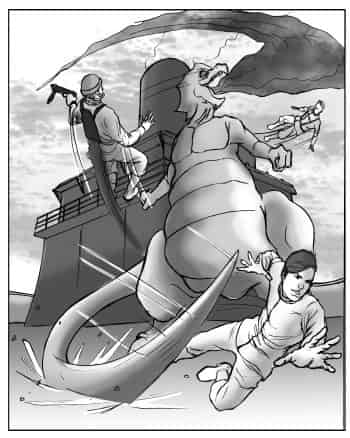The temptation to be pompous—Part I
In superhero films or their comic book equivalents, there’s always a temptation to outdo the previous chapter. Russ Burlingame sums it up like this: “Each new film has to be bigger and bigger… [so] that the Marvel Studios films are spectacular adventures, but that they ultimately are so filled with spectacle that there isn’t a ton of room for story.” (“Is Captain America: The Winter Soldier the Best Marvel Movie Yet?”, http://comicbook.com, April 6, 2014). Along the same lines, Joe Casey says these huge-scale events leave increasingly less substance for readers—“less and less thematic resonance” (“CR Sunday Interview: Joe Casey,” http://www.comicsreporter.com, February 16, 2014). Mike Gold also points out the redundancy problem, when the consequences of these events are quickly fixed in the ensuing stories: “over the past 30 years the DC fans have learned one and only one thing: we cannot trust DC to sustain a thought.” (“What Goes Around Inevitably Comes Around,” www.comicmix.com, September 10, 2014).
SauronsBANE elaborates on this theme, offering a few suggestions. “Of course, a proper sequel really should improve upon the 1st film… by raising the stakes. Unfortunately, I believe too many filmmakers get caught up in trying to raise the scale. See the difference?
On one hand, you can have an effective sequel that successfully manages to make things matter more. There’s more at risk if the hero should fail. Indeed, by raising the stakes, the natural result is that drama, conflict, and tension all become heightened as well. Of course, that naturally leads to a more entertaining, emotionally resonant film that’s easy to get invested in. This is basic filmmaking 101.
“But on the other hand, by only raising the scale of things in a sequel, it just leads to a series of movies that steadily progress from something as superficial as city-wide threats, to nationwide threats, to planet-wide threats, and possibly even universal threats. This may seem like a legitimate way of doing things in film, but I can pretty much guarantee that there is no better way to ensure that a series of movies become as boring, repetitive, cliché, and unoriginal as possible.” (“Top 3 Worst Hollywood Trends,” http://www.comicbookmovie.com, July 8, 2015).
In our opinion, Cap’s latest film, Captain America: Civil War, provides stakes that have depth rather than just size. At the film’s end, we see a superheroes clash, but not to save the world: it’s because one of the protagonists wants to avenge the death of his loved ones.
Without stretching the comparison too far, after the confrontation that happened in the Arctic in the Apatrides story, which featured a lot of players and a larger-scale deployment, we shifted back to more circumscribed stories. We did this for two reasons: To keep upping the ante with ever-larger stories is not viable, in that the element of surprise is lost for the reader. And, also, these events have to be led up to. You can’t just pull them out of hat.





